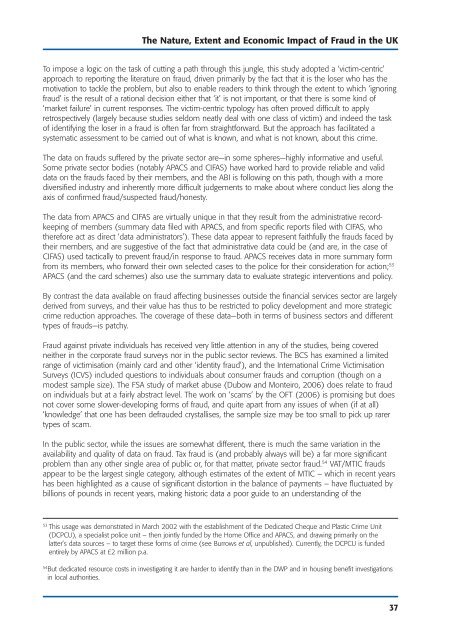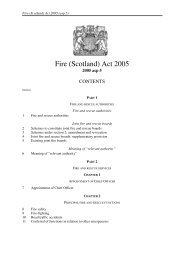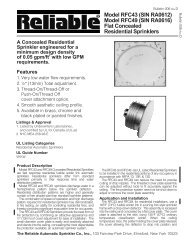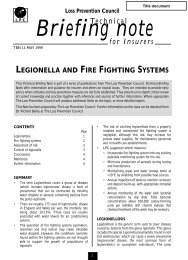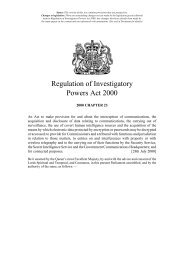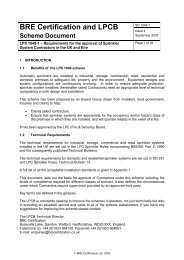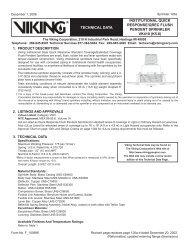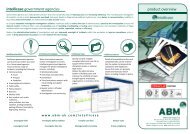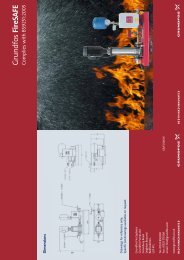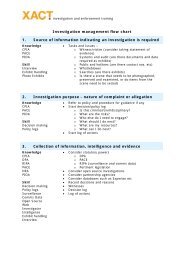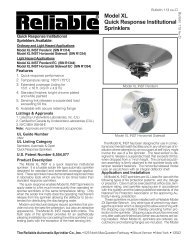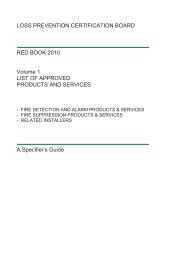The Nature, Extent and Economic Impact of ... - Cardiff University
The Nature, Extent and Economic Impact of ... - Cardiff University
The Nature, Extent and Economic Impact of ... - Cardiff University
Create successful ePaper yourself
Turn your PDF publications into a flip-book with our unique Google optimized e-Paper software.
<strong>The</strong> <strong>Nature</strong>, <strong>Extent</strong> <strong>and</strong> <strong>Economic</strong> <strong>Impact</strong> <strong>of</strong> Fraud in the UK<br />
To impose a logic on the task <strong>of</strong> cutting a path through this jungle, this study adopted a ‘victim-centric’<br />
approach to reporting the literature on fraud, driven primarily by the fact that it is the loser who has the<br />
motivation to tackle the problem, but also to enable readers to think through the extent to which ‘ignoring<br />
fraud’ is the result <strong>of</strong> a rational decision either that ‘it’ is not important, or that there is some kind <strong>of</strong><br />
‘market failure’ in current responses. <strong>The</strong> victim-centric typology has <strong>of</strong>ten proved difficult to apply<br />
retrospectively (largely because studies seldom neatly deal with one class <strong>of</strong> victim) <strong>and</strong> indeed the task<br />
<strong>of</strong> identifying the loser in a fraud is <strong>of</strong>ten far from straightforward. But the approach has facilitated a<br />
systematic assessment to be carried out <strong>of</strong> what is known, <strong>and</strong> what is not known, about this crime.<br />
<strong>The</strong> data on frauds suffered by the private sector are—in some spheres—highly informative <strong>and</strong> useful.<br />
Some private sector bodies (notably APACS <strong>and</strong> CIFAS) have worked hard to provide reliable <strong>and</strong> valid<br />
data on the frauds faced by their members, <strong>and</strong> the ABI is following on this path, though with a more<br />
diversified industry <strong>and</strong> inherently more difficult judgements to make about where conduct lies along the<br />
axis <strong>of</strong> confirmed fraud/suspected fraud/honesty.<br />
<strong>The</strong> data from APACS <strong>and</strong> CIFAS are virtually unique in that they result from the administrative recordkeeping<br />
<strong>of</strong> members (summary data filed with APACS, <strong>and</strong> from specific reports filed with CIFAS, who<br />
therefore act as direct ‘data administrators’). <strong>The</strong>se data appear to represent faithfully the frauds faced by<br />
their members, <strong>and</strong> are suggestive <strong>of</strong> the fact that administrative data could be (<strong>and</strong> are, in the case <strong>of</strong><br />
CIFAS) used tactically to prevent fraud/in response to fraud. APACS receives data in more summary form<br />
from its members, who forward their own selected cases to the police for their consideration for action; 53<br />
APACS (<strong>and</strong> the card schemes) also use the summary data to evaluate strategic interventions <strong>and</strong> policy.<br />
By contrast the data available on fraud affecting businesses outside the financial services sector are largely<br />
derived from surveys, <strong>and</strong> their value has thus to be restricted to policy development <strong>and</strong> more strategic<br />
crime reduction approaches. <strong>The</strong> coverage <strong>of</strong> these data—both in terms <strong>of</strong> business sectors <strong>and</strong> different<br />
types <strong>of</strong> frauds—is patchy.<br />
Fraud against private individuals has received very little attention in any <strong>of</strong> the studies, being covered<br />
neither in the corporate fraud surveys nor in the public sector reviews. <strong>The</strong> BCS has examined a limited<br />
range <strong>of</strong> victimisation (mainly card <strong>and</strong> other ‘identity fraud’), <strong>and</strong> the International Crime Victimisation<br />
Surveys (ICVS) included questions to individuals about consumer frauds <strong>and</strong> corruption (though on a<br />
modest sample size). <strong>The</strong> FSA study <strong>of</strong> market abuse (Dubow <strong>and</strong> Monteiro, 2006) does relate to fraud<br />
on individuals but at a fairly abstract level. <strong>The</strong> work on ‘scams’ by the OFT (2006) is promising but does<br />
not cover some slower-developing forms <strong>of</strong> fraud, <strong>and</strong> quite apart from any issues <strong>of</strong> when (if at all)<br />
‘knowledge’ that one has been defrauded crystallises, the sample size may be too small to pick up rarer<br />
types <strong>of</strong> scam.<br />
In the public sector, while the issues are somewhat different, there is much the same variation in the<br />
availability <strong>and</strong> quality <strong>of</strong> data on fraud. Tax fraud is (<strong>and</strong> probably always will be) a far more significant<br />
problem than any other single area <strong>of</strong> public or, for that matter, private sector fraud. 54 VAT/MTIC frauds<br />
appear to be the largest single category, although estimates <strong>of</strong> the extent <strong>of</strong> MTIC – which in recent years<br />
has been highlighted as a cause <strong>of</strong> significant distortion in the balance <strong>of</strong> payments – have fluctuated by<br />
billions <strong>of</strong> pounds in recent years, making historic data a poor guide to an underst<strong>and</strong>ing <strong>of</strong> the<br />
53<br />
This usage was demonstrated in March 2002 with the establishment <strong>of</strong> the Dedicated Cheque <strong>and</strong> Plastic Crime Unit<br />
(DCPCU), a specialist police unit – then jointly funded by the Home Office <strong>and</strong> APACS, <strong>and</strong> drawing primarily on the<br />
latter’s data sources – to target these forms <strong>of</strong> crime (see Burrows et al, unpublished). Currently, the DCPCU is funded<br />
entirely by APACS at £2 million p.a.<br />
54<br />
But dedicated resource costs in investigating it are harder to identify than in the DWP <strong>and</strong> in housing benefit investigations<br />
in local authorities.<br />
37


